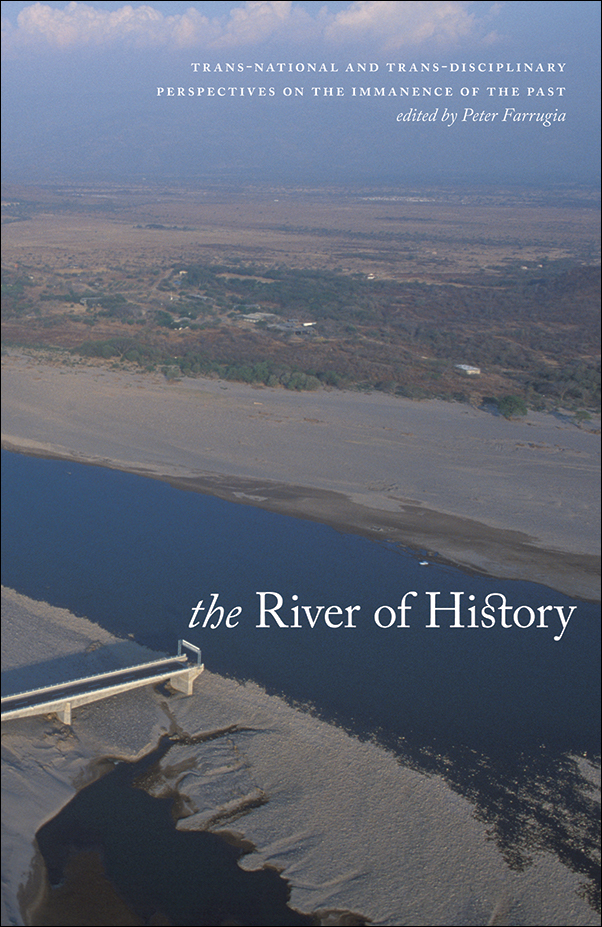
The River of History: Trans-national and Trans-disciplinary Perspectives on the Immanence of the Past
Edited by Peter Farrugia
$39.95 CAD / $40.95 USD
304 pages, 9 illustrations
6 x 9 inches
Paperback: 978-1-55238-160-1
Library PDF: 978-1-55238-441-1
July 2005
A collection that crosses disciplines to ask essential and poignant questions about the nature and study of History and the creation of Historical Consciousness.
Does history matter any more? In an era when both the past and memory seem to be sources of considerable interest and, frequently, lively debate, has the academic discipline of history ceased to offer the connection between past and present experience that it was originally intended to provide? In short, has History become a bridge to nowhere, a structure over a river whose course has been permanently altered?
This is the overarching question that The River of History seeks to answer. Drawn from a broad spectrum of scholarly disciplines, the contributors tackle a wide range of questions. Does history, as it is practised in universities, provide any useful context for the average Canadian or has the task of historical consciousness-shaping passed to filmmakers and journalists? What can the history of Aboriginal and non-Aboriginal conceptions of land and property tell us about contemporary relations between these cultures? Is there a way to own the past that fosters sincere stock-taking without proprietary interest or rigid notions of linearity? And, finally, what does the history of technological change suggest about humanity’s ability to manage the process now and in the future?
The philosopher Heraclitus once likened history to a river and argued for its otherness by stating that “No man can cross the same river twice, because neither the man nor the river is the same.” This collection reconsiders this conceptualization, taking the reader on a journey along the river in an effort to better comprehend the ways in which past, present, and future are interconnected.
With Contributions By: Peter Farrugia, Robert Wright, Leo Groarke, John McLaren, Nancy E. Wright, A.R. Buck, John S. Hill, Jeffrey Scot Brown, Carol B Duncan, James Gerrie, M. Carleton Simpson, and Stephen F. Haller
Peter Farrugia is an associate professor of History and Contemporary Studies at the Brantford campus of Wilfrid Laurier University.
List of Contributors
Acknowledgements
Introduction: Navigating the River of History
Peter Farrugia
Section 1: Wither History? Professional Historians, Specialization and Popularization
The Way We Were? History as Infotainment in the age of History Television
Robert Wright
Teaching History: The Future of the Past
Leo Groarke
Section 2: "Sharper than Any Two-Edged Sword:" History, Colonialism and Land
The Memory of Property: The Challenge of Using the Past to Enlighten the Lawyers of the Future
John McLaren
Reading the Past: The Dispossession of the Por and the Aborigines in Colonial New South Wales
Nancy E. Wright
Understanding Property in Australian History
A.R. Buck
Section 3: Past, Present and Future Tense: How Do We Own the Past?
Historical Fictions: The Invention of Historical Events for Political Purposes
John S. Hill
Being Present, Owning the Past, and Growing the Future: Temporality, Revelation, and the Therapeutic Culture
Jeffrey Scott Brown
Teravessao: African Diasporic Migratory Subjectivity and the Making of History
Carol B. Duncan
Section 4: Future History: Technological Development and Historical Change
Canada’s Lost Tradition of Technological Criticism
James Gerrie
Linking the Past to the Future
M. Carleton Simpson
Predictions of Global Catastrophe: Just Another Chicken Little?
Stephen F. Haller
Index